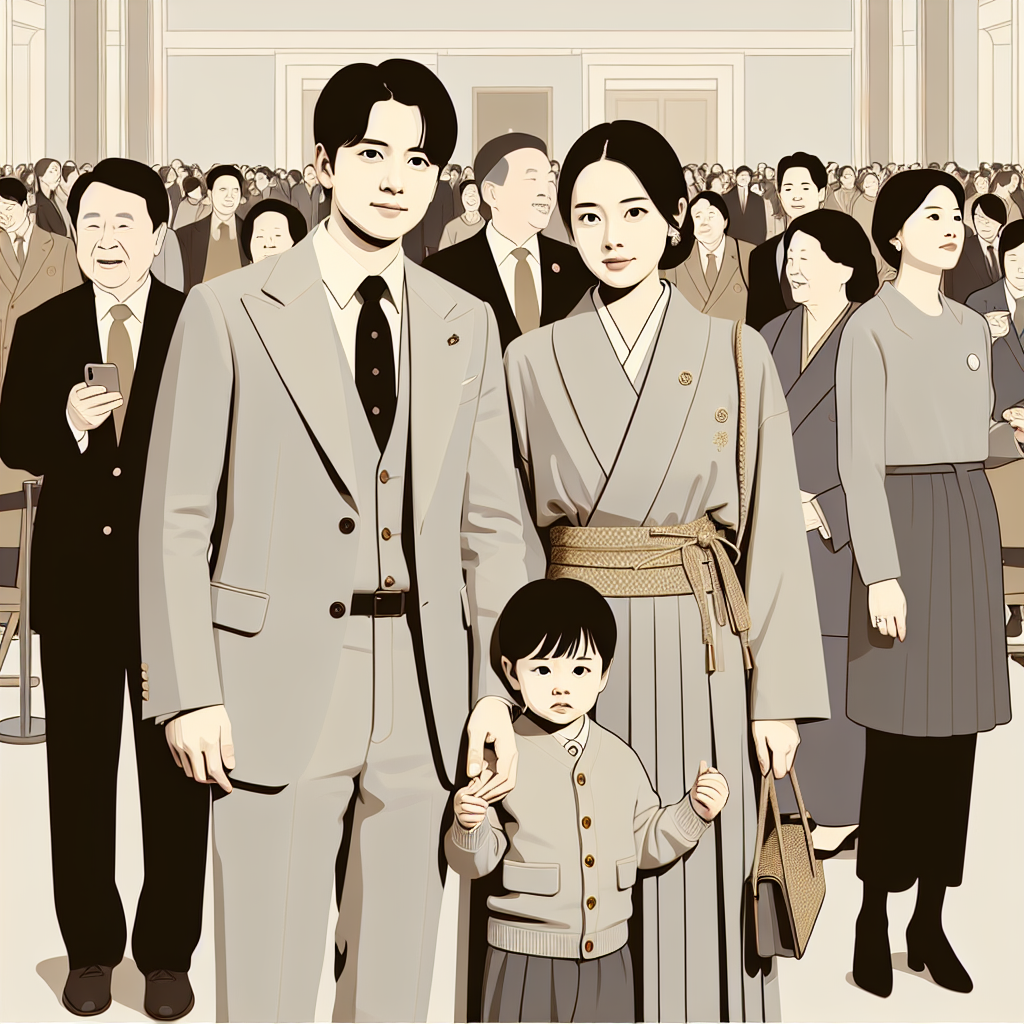The CEO of Airbnb, Brian Chesky, has talked about worries about how Airbnb affects housing in cities like New York. Even though he says Airbnb doesn’t directly cause housing shortages, Chesky admits that the company’s popularity can have unintended effects. He says it’s important to listen to cities and make changes to deal with any problems that come up.
Airbnb started in 2007 and now offers over seven million places to stay for a short time all over the world. But in New York City, the company is dealing with new rules that limit short-term rentals. These rules have made a big impact on what Airbnb can offer in the city, so they’re focusing more on longer stays and other places.
Chesky pointed out that while New York might have fewer short-term rentals, nearby towns in New Jersey and Connecticut are getting more bookings. He says people still want to visit New York, but they might choose to stay in other cities because it’s cheaper or because of the rules.
When Chesky was in New York City, he announced new things for Airbnb customers and hosts, like “Guest Favorites” to show great properties and better reviews with more details about the kind of travelers and trips. Also, hosts can now show off their property’s features with a new listings tab that uses AI to give a photo tour.
In short, Chesky’s words show that Airbnb is trying to deal with cities’ worries and adjust to new rules. He also says that other communities might benefit from changes in the short-term rental market.
Original news source: Airbnb boss ‘listening’ to cities’ housing concerns (BBC)
Listen
Slow
Normal
Fast
Group or Classroom Activities
Warm-up Activities:
– News Summary
Instructions: Students will be divided into groups and given a section of the article to summarize. They should focus on the main points and be ready to present their summary to the class in under one minute. This activity will help students practice concise speaking and summarizing skills.
– Opinion Poll
Instructions: Prepare a series of statements about the impact of Airbnb on housing and the regulations in New York City. Students will move to different areas of the room based on their opinion (strongly agree, agree, neutral, disagree, strongly disagree). This will encourage students to express their opinions and use language related to agreement and disagreement.
– Vocabulary Pictionary
Instructions: Write down key vocabulary from the article on slips of paper (e.g., “shortage,” “unintended effects,” “regulations,” “properties”). Students will take turns drawing the words on the board without speaking, while their team guesses the vocabulary. This activity will help reinforce the new vocabulary in a fun and interactive way.
– Role-play: News Reporter and CEO Interview
Instructions: One student plays the role of a news reporter while another takes on the role of CEO Brian Chesky. The reporter will ask questions about the article’s content, such as the impact of Airbnb on housing and the new features announced for customers and hosts. This activity helps students practice speaking fluently and using specific information in a conversational context.
– Future Predictions
Instructions: Students will work in pairs to discuss and write down their predictions about the future of Airbnb and its impact on cities based on the information from the article. They will share their predictions with the class and provide reasons for their thoughts. This activity encourages the use of future tenses and speculative language.
Comprehension Questions:
1. What concerns has Brian Chesky, CEO of Airbnb, addressed regarding the company’s impact on housing in cities like New York?
2. How has Airbnb responded to the housing shortage issues that have been raised?
3. When was Airbnb founded and how many places does it currently offer globally for short-term stays?
4. What new regulations in New York City have affected Airbnb’s offerings, and how is the company adapting?
5. According to Chesky, how are nearby towns in New Jersey and Connecticut benefiting from New York’s short-term rental rules?
6. What reasons does Chesky give for people choosing to stay in cities outside of New York?
7. Can you list some of the new features that Airbnb has introduced for customers and hosts?
8. How does the article suggest that changes in the short-term rental market might benefit other communities?
Go to answers ⇩
Listen and Fill in the Gaps:
The CEO of (1)______, Brian Chesky, has talked about worries about how Airbnb affects housing in (2)______ like New York. Even though he says Airbnb doesn’t directly cause housing shortages, Chesky admits that the company’s popularity can have (3)______ effects. He says it’s important to listen to cities and make (4)______ to deal with any problems that come up.
Airbnb started in 2007 and now (5)______s over seven million places to stay for a (6)______ time all over the world. But in New York City, the (7)______ is dealing with new rules that limit short-term rentals. These rules have made a big impact on what Airbnb can offer in the city, so they’re focusing more on longer (8)______ and other places.
Chesky pointed out that while New York might have fewer short-term rentals, nearby (9)______ in New Jersey and Connecticut are getting more bookings. He says people still want to visit New York, but they might (10)______ to stay in other cities because it’s cheaper or because of the rules.
When Chesky was in New York City, he announced new (11)______ for Airbnb customers and hosts, like “Guest Favorites” to show (12)______ properties and better reviews with more details about the kind of travelers and trips. Also, hosts can now show off their property’s features with a new listings tab that uses AI to give a photo tour.
In short, Chesky’s words show that Airbnb is (13)______ to deal with cities’ (14)______ and (15)______ to new rules. He also says that other communities might benefit from changes in the short-term (16)______ market.
Go to answers ⇩
Discussion Questions:
Students can ask a partner these questions, or discuss them as a group.
1. What is your opinion on renting a place to stay through a website like Airbnb instead of staying at a hotel?
2. How would you feel if your neighborhood had a lot of short-term rentals available?
3. Do you think it’s fair for cities to create rules that limit short-term rentals like Airbnb? Why or why not?
4. Have you or someone you know ever stayed in an Airbnb? What was the experience like?
5. What are some possible benefits of staying in a nearby town instead of directly in a big city like New York?
6. Do you like the idea of a feature that shows “Guest Favorites” for places to stay? Why or why not?
7. How do you think a community might benefit from more people booking short-term rentals there?
8. If you were a homeowner, would you consider renting out your place on Airbnb? Why or why not?
9. What do you think about using artificial intelligence to give a photo tour of a property?
10. How important do you think it is for companies to listen to cities and adjust their services accordingly?
11. Do you think Airbnb has a responsibility to help solve housing shortages? Why or why not?
12. What kind of impact do you think short-term rentals have on neighborhoods and local residents?
13. If you were visiting a new city, would you prefer a short-term rental or a longer stay? Why?
14. How do you think better reviews with more details would change the way people choose where to stay?
15. Do you believe that the popularity of services like Airbnb could change the way we travel in the future? How so?
Individual Activities
Vocabulary Meanings:
Match each word to its meaning.
Words:
1. Airbnb
2. CEO
3. New York
4. rentals
5. cities
6. properties
7. hosts
8. travelers
Meanings:
(a) Places where people can stay temporarily
(b) Urban areas with a large population
(c) A company that offers short-term stays
(d) The person in charge of a company
(e) The person who owns the accommodation
(f) People who stay in accommodations temporarily
(g) People who own and rent out accommodations
(h) Buildings or accommodations that are rented out
Go to answers ⇩
Multiple Choice Questions:
1. When did Airbnb start?
(a) 2010
(b) 2007
(c) 2015
(d) 2020
2. What did Chesky announce for Airbnb customers and hosts in New York City?
(a) “Guest Favorites” and better reviews
(b) Longer stays and cheaper prices
(c) New rules and restrictions
(d) More properties and higher prices
3. What is Airbnb focusing more on in New York City due to new rules?
(a) Longer stays and other places
(b) Short-term rentals only
(c) Luxury properties
(d) Hostels and shared rooms
4. What did Chesky say about the impact of the new rules in New York City?
(a) People are choosing to stay in New York City despite the rules
(b) Nearby towns in New Jersey and Connecticut are getting more bookings
(c) Short-term rentals have increased in New York City
(d) The rules have had no impact on Airbnb’s offerings
5. What did Chesky mention as a reason why people might choose to stay in other cities instead of New York?
(a) It’s more expensive
(b) There are no rules in other cities
(c) It’s cheaper
(d) New York has better attractions
6. What new feature did Chesky announce for hosts to show off their property’s features?
(a) A virtual reality experience for potential guests
(b) A live video stream of the property
(c) A 3D model of the property
(d) A new listings tab that uses AI to give a photo tour
7. According to Chesky, what is Airbnb trying to do in response to cities’ worries?
(a) Ignore the concerns
(b) Expand into more cities
(c) Decrease the number of properties available
(d) Adjust to new rules
8. What did Chesky suggest about other communities in relation to changes in the short-term rental market?
(a) They will be negatively affected
(b) They will have no impact
(c) They might benefit from the changes
(d) They will become less popular
Go to answers ⇩
True or False Questions:
1. The CEO of Airbnb, Brian Chesky, is unconcerned about how Airbnb affects housing in cities like New York.
2. Airbnb is focusing more on longer stays and other places in response to the new rules in New York City.
3. Chesky believes that other communities might benefit from changes in the short-term rental market.
4. New York City has old rules that encourage short-term rentals, which has positively impacted what Airbnb can offer in the city.
5. Chesky announced outdated features for Airbnb customers and hosts, such as “Guest Dislikes” and worse reviews with fewer details.
6. Chesky mentioned that nearby towns in New Jersey and Connecticut are getting more bookings due to the new rules in New York.
7. Chesky admits that Airbnb’s popularity can have unintended effects on housing.
8. Airbnb started in 2017 and now offers under seven million places to stay for a short time all over the world.
Go to answers ⇩
Write a Summary:
Write a summary of this news article in two sentences.
Check your writing now with the best free AI for English writing!
Writing Questions:
Answer the following questions. Write as much as you can for each answer.
Check your answers with our free English writing assistant!
1. What concern did Brian Chesky, the CEO of Airbnb, discuss regarding the impact of Airbnb on housing in cities?
2. How has Airbnb responded to the new regulations in New York City that limit short-term rentals?
3. According to Chesky, how are towns in New Jersey and Connecticut affected by the changes in New York City’s rental policies?
4. What new features did Chesky announce for Airbnb customers and hosts during his visit to New York City?
5. How does Chesky’s statement reflect Airbnb’s efforts to address the concerns of cities and adapt to new regulations?
Answers
Comprehension Question Answers:
1. What concerns has Brian Chesky, CEO of Airbnb, addressed regarding the company’s impact on housing in cities like New York?
Brian Chesky has talked about worries regarding Airbnb’s impact on housing shortages in cities like New York. He acknowledges that while Airbnb doesn’t directly cause these shortages, its popularity might have some unintended side effects.
2. How has Airbnb responded to the housing shortage issues that have been raised?
Airbnb is listening to cities and making changes to address the issues, such as focusing more on longer stays and adapting to new regulations that limit short-term rentals.
3. When was Airbnb founded and how many places does it currently offer globally for short-term stays?
Airbnb was founded in 2007 and currently offers over seven million places for short-term stays around the world.
4. What new regulations in New York City have affected Airbnb’s offerings, and how is the company adapting?
New York City has implemented new rules that limit short-term rentals. In response, Airbnb is adapting by focusing more on longer-term stays and expanding in other areas.
5. According to Chesky, how are nearby towns in New Jersey and Connecticut benefiting from New York’s short-term rental rules?
Nearby towns in New Jersey and Connecticut are seeing an increase in bookings because people still want to visit New York but may choose to stay in these towns due to lower costs or the new regulations.
6. What reasons does Chesky give for people choosing to stay in cities outside of New York?
Chesky suggests that people might choose to stay outside of New York because it can be cheaper or because of the short-term rental rules in the city.
7. Can you list some of the new features that Airbnb has introduced for customers and hosts?
Some new features include “Guest Favorites” to highlight top properties, more detailed reviews to match travelers with trips, and a new listings tab that uses AI to create a photo tour of the property.
8. How does the article suggest that changes in the short-term rental market might benefit other communities?
The article suggests that as Airbnb adapts to new regulations, other communities might benefit from an increase in bookings and economic activity due to changes in the short-term rental market.
Go back to questions ⇧
Listen and Fill in the Gaps Answers:
(1) Airbnb
(2) cities
(3) unintended
(4) changes
(5) offer
(6) short
(7) company
(8) stays
(9) towns
(10) choose
(11) things
(12) great
(13) trying
(14) worries
(15) adjust
(16) rental
Go back to questions ⇧
Vocabulary Meanings Answers:
1. Airbnb
Answer: (d) The person in charge of a company
2. CEO
Answer: (c) A company that offers short-term stays
3. New York
Answer: (a) Places where people can stay temporarily
4. rentals
Answer: (g) People who own and rent out accommodations
5. cities
Answer: (b) Urban areas with a large population
6. properties
Answer: (f) People who stay in accommodations temporarily
7. hosts
Answer: (e) The person who owns the accommodation
8. travelers
Answer: (h) Buildings or accommodations that are rented out
Go back to questions ⇧
Multiple Choice Answers:
1. When did Airbnb start?
Answer: (b) 2007
2. What did Chesky announce for Airbnb customers and hosts in New York City?
Answer: (a) “Guest Favorites” and better reviews
3. What is Airbnb focusing more on in New York City due to new rules?
Answer: (a) Longer stays and other places
4. What did Chesky say about the impact of the new rules in New York City?
Answer: (b) Nearby towns in New Jersey and Connecticut are getting more bookings
5. What did Chesky mention as a reason why people might choose to stay in other cities instead of New York?
Answer: (c) It’s cheaper
6. What new feature did Chesky announce for hosts to show off their property’s features?
Answer: (d) A new listings tab that uses AI to give a photo tour
7. According to Chesky, what is Airbnb trying to do in response to cities’ worries?
Answer: (d) Adjust to new rules
8. What did Chesky suggest about other communities in relation to changes in the short-term rental market?
Answer: (c) They might benefit from the changes
Go back to questions ⇧
True or False Answers:
1. The CEO of Airbnb, Brian Chesky, is unconcerned about how Airbnb affects housing in cities like New York. (Answer: False)
2. Airbnb is focusing more on longer stays and other places in response to the new rules in New York City. (Answer: True)
3. Chesky believes that other communities might benefit from changes in the short-term rental market. (Answer: True)
4. New York City has old rules that encourage short-term rentals, which has positively impacted what Airbnb can offer in the city. (Answer: False)
5. Chesky announced outdated features for Airbnb customers and hosts, such as “Guest Dislikes” and worse reviews with fewer details. (Answer: False)
6. Chesky mentioned that nearby towns in New Jersey and Connecticut are getting more bookings due to the new rules in New York. (Answer: True)
7. Chesky admits that Airbnb’s popularity can have unintended effects on housing. (Answer: True)
8. Airbnb started in 2017 and now offers under seven million places to stay for a short time all over the world. (Answer: False)
Go back to questions ⇧















